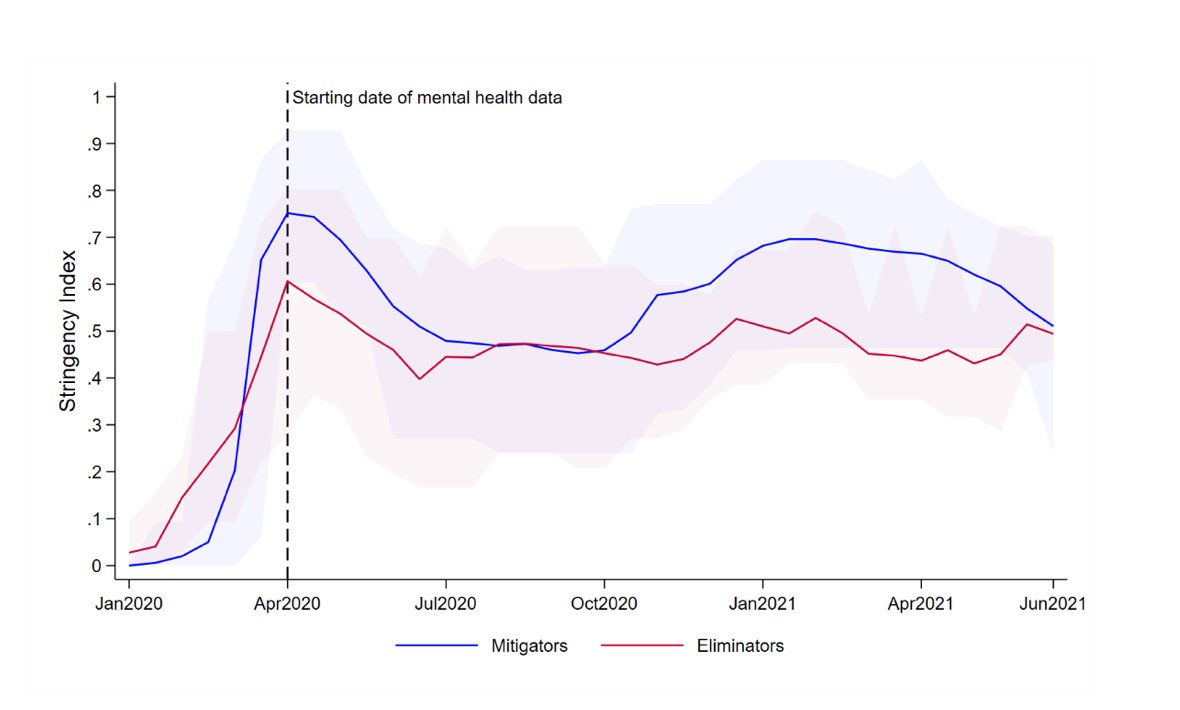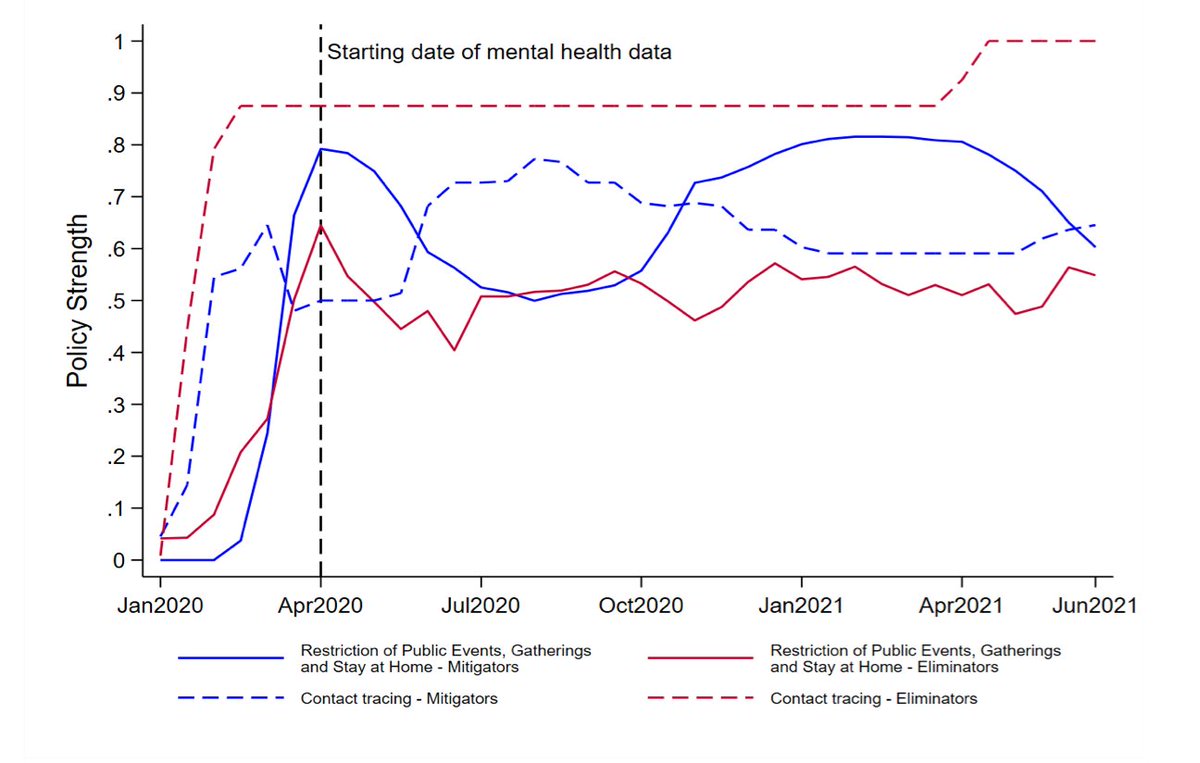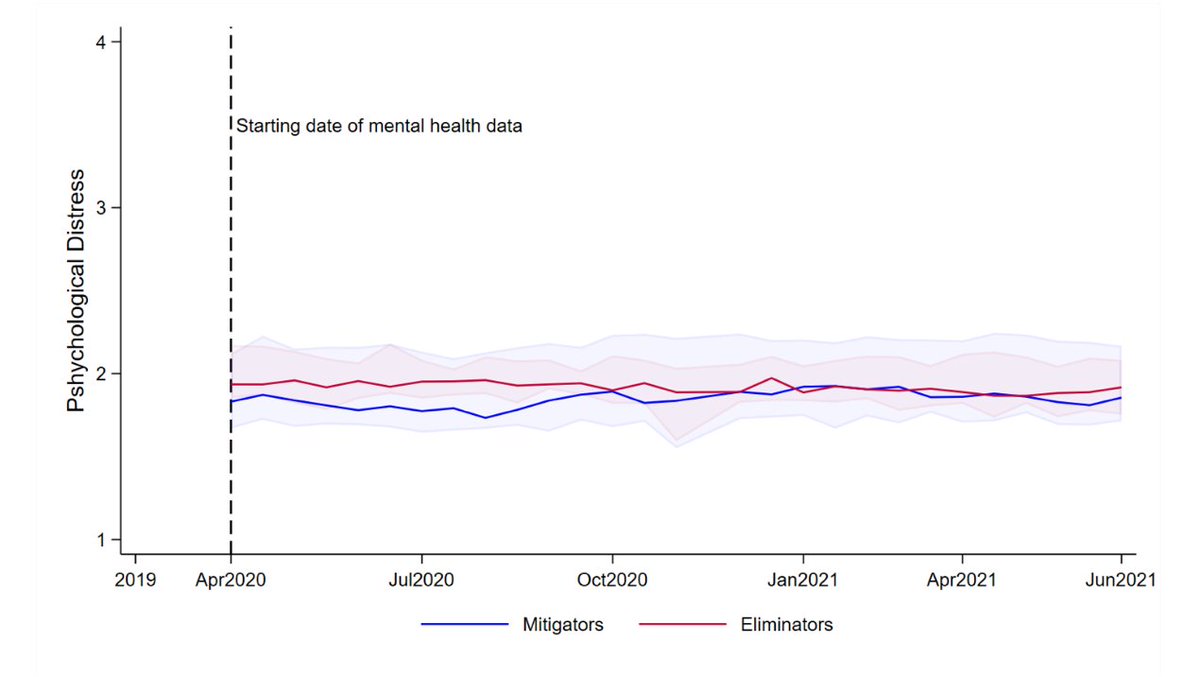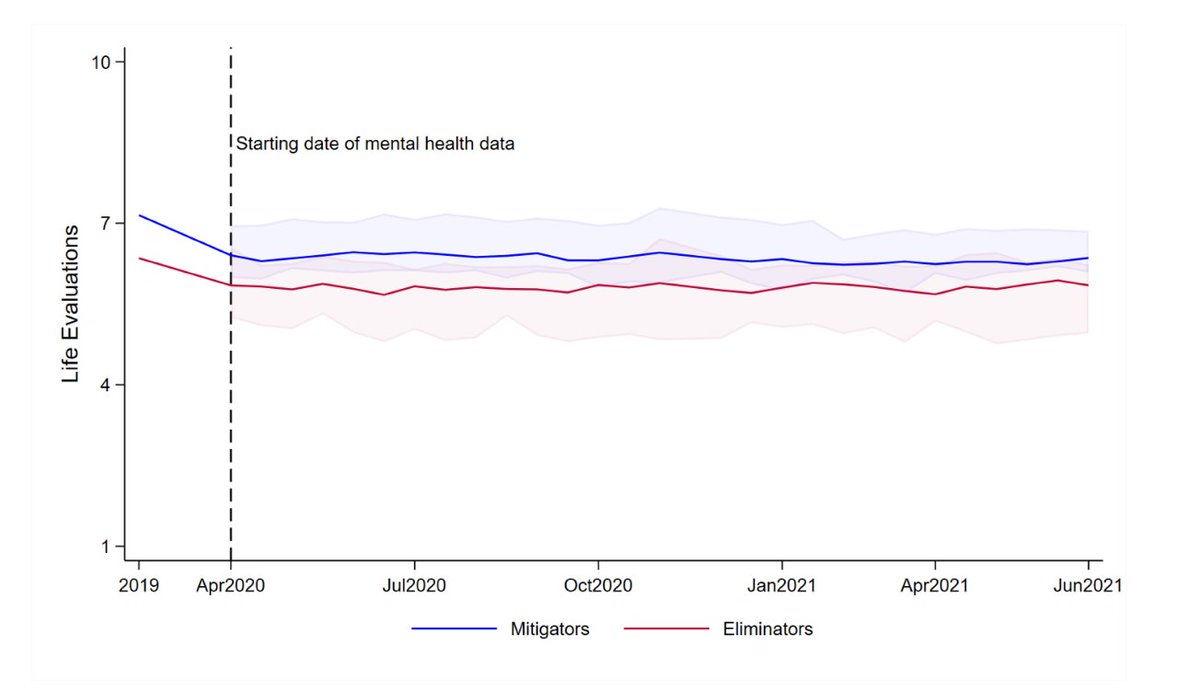
NEW PAPER in @TheLancetPH : Public health policies implemented during COVID-19 have been evaluated primarily on their ability to reduce transmission and minimise economic harm. But how are COVID-19 restrictions associated with short-term mental health? 🧵
sciencedirect.com/science/articl…
sciencedirect.com/science/articl…
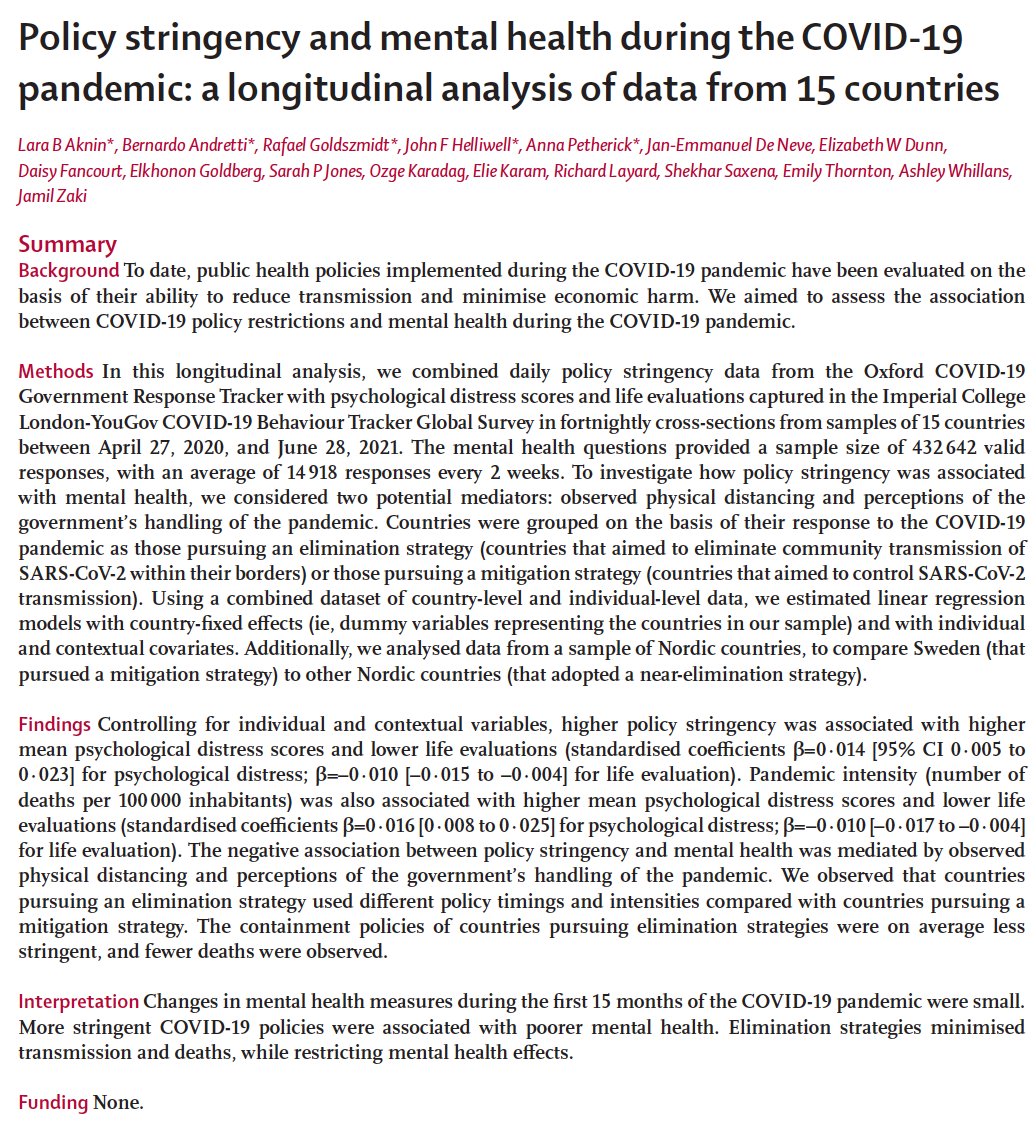
To find out, we combined policy stringency data from #Oxford (@BlavatnikSchool) COVID-19 Govt Response Tracker with measures of psych distress and life evals from repeated cross-sectional surveys in 15 countries over 15 months by @imperialcollege and @YouGov (N=432,642).
We grouped countries based on their pandemic response as either “eliminators” (aimed to eliminate community transmission within their borders) or “mitigators” (aimed to control virus spread). We also compared Sweden to the other Nordic countries as a quasi-natural experiment.
Finding 1: Controlling for individual and contextual variables, greater policy stringency and pandemic intensity (daily deaths /100k) were each independently assoc with worse mental health, and to a similar degree.
Finding 2: The assoc between policy stringency and mental health was small. Moving from lowest to highest stringency was assoc with a .07 drop in life evals. This is less than a fifth of the effect of unemployment.
Finding 3: Over time, policy stringency was indirectly assoc with future mental health by reducing future deaths. The effects of stringency on reduced deaths (as estimated by Hale et al., 2021) are much larger than those observed for mental health. 
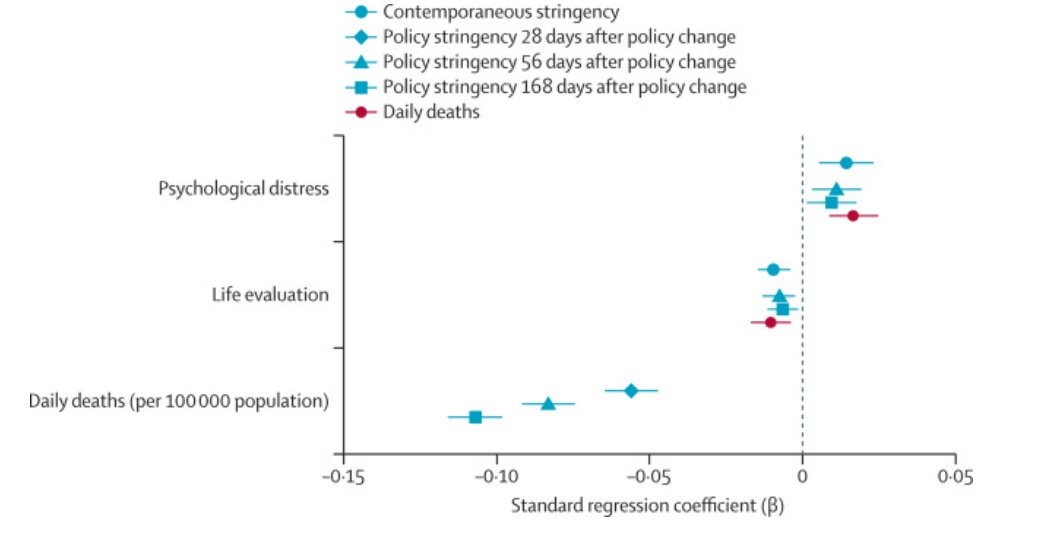
Finding 4: Eliminators used lower avg levels of policy stringency than mitigators and they adopted early and targeted action which led to lower levels of virus circulation. These countries had fewer deaths and more positive trends in mental health during the pandemic.
Finding 4c: Eliminator countries also had fewer daily deaths per 100,000 inhabitants than mitigator countries. 
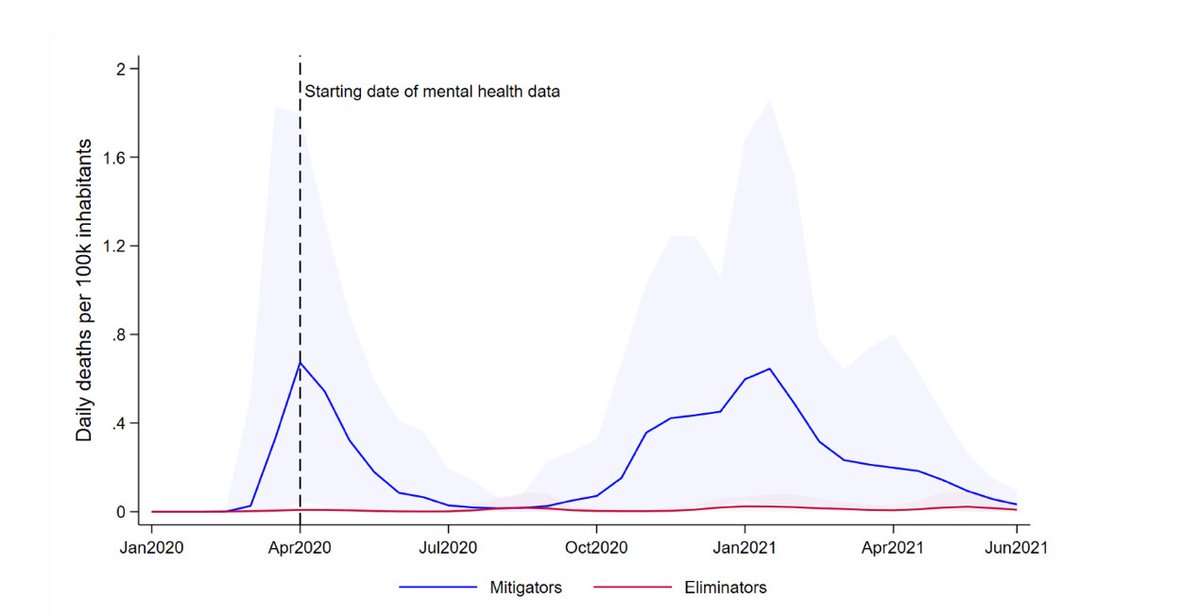
Finding 5: The neg assoc between policy stringency and mental health was mediated by the extent to which ppl followed physical distancing guidelines and their perceptions of the govt’s handling of the pandemic.
Concl: There is a small neg assoc between policy stringency and mental health. However, because greater policy stringency is assoc with lower cases and deaths, eliminators experienced fewer deaths with equivalent or lower avg levels of stringency, limiting mental health costs.
• • •
Missing some Tweet in this thread? You can try to
force a refresh

